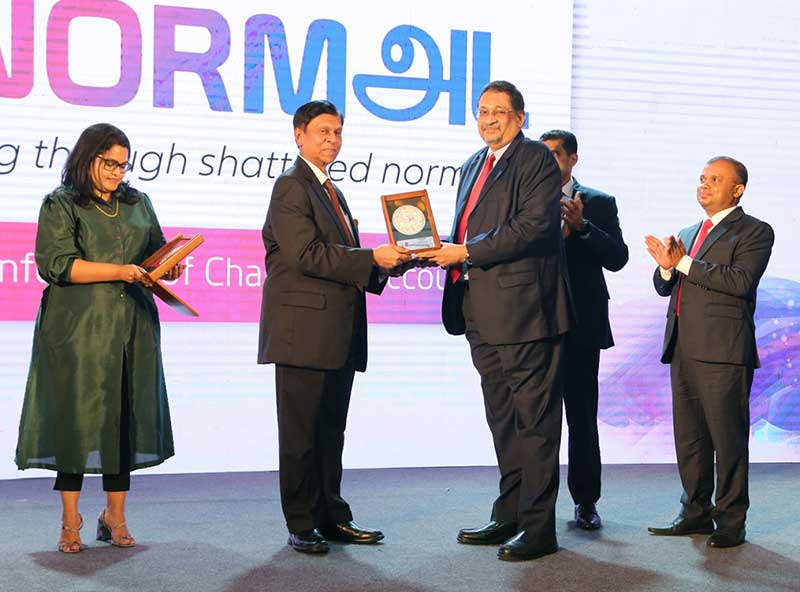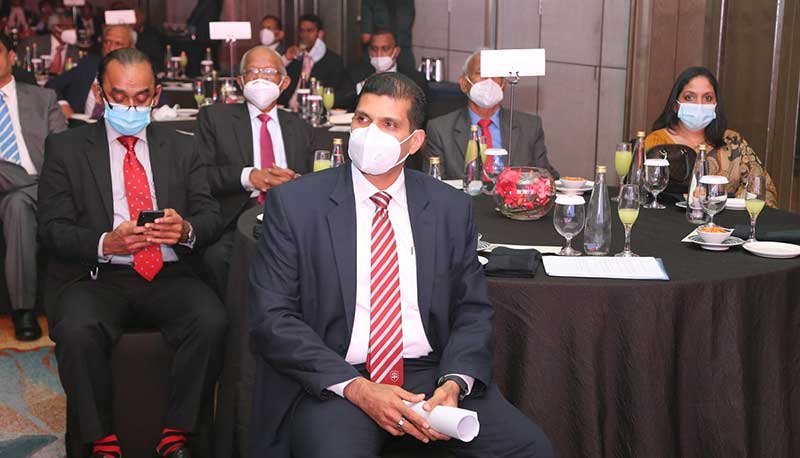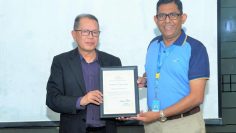
CA Sri Lanka’s 41st National Conference spotlights Chartered Accountants key role in spurring robust growth amidst COVID
The powerful role Chartered Accountants can play in spurring robust growth despite the COVID-19 global pandemic was highlighted at the 41st National Conference of Chartered Accountants organised by the Institute of Chartered Accountants of Sri Lanka (CA Sri Lanka) this week.

Chief guest at the inauguration ceremony, State Minister of Money, Capital Markets and State Enterprise Reforms Hon. Ajith Nivard Cabraal said that he would like to see Chartered Accountants in Sri Lanka play a more active role in creating new opportunities for the country by connecting the right people to invest and spur growth.
“Talk to your clients and your overseas partners and market Sri Lanka to ensure it is robust once again. We must make Sri Lanka a globally accessible workshop. If we make it a workshop, then I think we will have plenty of opportunities for our people,” he told over 2000 participants who had registered for the 3-day conference from 18th to 20th January 2021.
For the first time in its history, the National Conference recognised as Sri Lanka’s biggest business summit adopted a hybrid model, with a combination of traditional physical and virtual sessions due to the prevailing global pandemic. The participants comprising of Chartered Accountants including business leaders and c-suite executives connected to the conference virtually from all over the world.
Mr. Cabraal said the government is taking steps to open up the Colombo Port City and the Hambantota Port Industrial Zone among many other new initiatives which, according to him, are tremendous opportunities for Chartered Accountants to promote to the world.
Mr. Cabraal said that the recent stock market performance has proved that Sri Lanka has enough depth. “We have 10 trillion rupees in deposits in banks and today you can see what can be done with that. So, the fallacy that Sri Lanka does not have the depth is no more valid. We can now move to the next phase of development, where capital markets will be able to provide the capital for Sri Lankan businesses to thrive and prosper,” he said.
The State Minister also said that the government is aiming for Sri Lanka to become a US $ 150 billion economy which can be achieved through investments coming into the country over the next five years. “We are developing laws to enable people to invest safely and a governance system which will provide the confidence and integrity for people to see Sri Lanka as a viable destination and we are developing the infrastructure which will enable people to do business better,” he added.
Delivering the keynote speech, Ms. Selyna Peiris, Director, Business Development, Selyn Exporters (Pvt) Ltd cautioned that many companies will meet their demise when they lose sight of their purpose. “COVID-19 has proven beyond doubt that it is vital that we are purpose driven in order to survive, and we as businesses must put our people and planet before profit,” she said.
Ms. Peris said many mainstream companies primarily focus on their bottom line or profit, but for SME companies such as Selyn, it is people, planet, and profit. “All three have to go inline and we work towards ensuring a triple bottom line, and we don’t compromise on people and planet while we operate to maximise our profit.”
She said that if companies increasingly focus on innovation in product and processes, then achieving the triple bottom line is possible. “Businesses can’t move into the future without knowing its purpose,” she underscored.
The keynote speaker emphasised that COVID has been an important lesson for leaders and businesses recalibrate by understanding that there is an opportunity to give people and planet priority. “This will not affect your profit, and research shows that since the COVID outbreak it has pushed consumers towards ethical and conscious consumption. Which means consumers will shop more consciously and buy more sustainable options and brands. Therefore, brands and industries will have to make that a key part of what they offer,” she said.
Ms. Peris added that it is no longer about just marketing or creating a new product, but it is about redefining the purpose of the business and what value it adds to the country and its people.
Senior Prof. Sampath Amaratunge, Chairman of the University Grants Commission elaborated how the pandemic has helped state universities embrace digitalization. “Till the lockdown in March 2020, we had never conducted a single class online. We had the learning management system, but we only uploaded our teaching material for students to download it. But after March 13th we gradually started teaching and conducting examinations online for the university students,” he said.
Prof. Amaratunge said that all state universities in Sri Lanka were at a primitive level in relation to technology, but, following COVID, the state universities have now digitalized their teaching processes. “Now we conduct all examinations, lectures and even practical’s online and we are on par with everyone else,” he said.
The digitalization of lectures and examinations in state universities has also paved the way for the universities to increase the annual intake by a further 10,000 students for the first time in the history of the country. “This time we have increased the intake by 10,000. After independence, and until 2019, we only managed 30,000 admission to universities annually, but in 2020 we have increased this from 30,000 to 40,000 students. Also, in March 2021, we are going to get another 10,000 IT undergraduates to the Open University,” he added.






